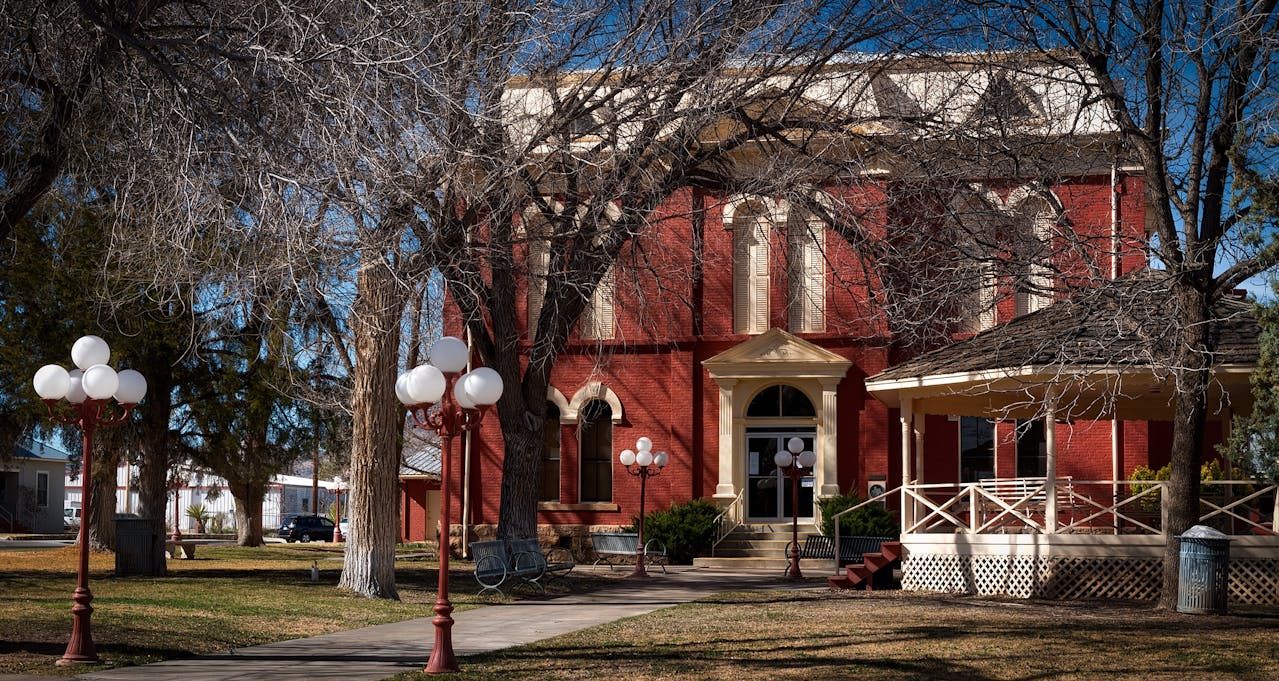Departments and specialties
Parkland Memorial Hospital in Dallas offers a wide range of departments and specialties to cater to diverse patient needs. Key departments include Emergency Medicine, Trauma Services, Cardiology, Oncology, Neurology, and Orthopedics. The hospital is also known for its Burn Center and Level I Trauma Center. Specialized services for seniors include Geriatric Medicine, Palliative Care, Chronic Disease Management, and Cognitive Health. Additionally, Parkland provides maternal and neonatal care, mental health services, rehabilitation, and outpatient clinics, ensuring comprehensive healthcare coverage for all age groups, with a strong focus on preventive care and community outreach.

Introduction
Parkland Memorial Hospital, located in Dallas, Texas, is renowned for its longstanding commitment to delivering high-quality healthcare services to the Dallas community. Established in 1894, Parkland has grown into one of the largest public hospitals in the United States. It is well-known for its state-of-the-art facilities and groundbreaking initiatives in various fields of medicine. Among its broad range of services, Parkland places significant emphasis on senior care, recognizing the growing healthcare needs of an aging population in Dallas and beyond.
In recent decades, the healthcare needs of seniors have become an essential focal point for hospitals nationwide due to the demographic shift resulting from the aging baby boomer generation. By 2030, the number of people aged 65 and older in the United States is projected to reach 73 million, which will make up 21% of the total population. Parkland Memorial Hospital, understanding this impending demand, has instituted numerous programs and services specifically designed to cater to older adults in the Dallas area. This essay will explore Parkland’s approach to senior care, its programs, its healthcare philosophy for older adults, and its role in shaping the future of elder healthcare.
The Growing Need for Senior Care at Parkland Memorial Hospital
Seniors often have complex and chronic medical conditions that require specialized care. These conditions can range from heart disease, diabetes, arthritis, and hypertension to cognitive issues such as dementia and Alzheimer’s disease. Additionally, the aging process makes recovery from illness or surgery more difficult, and many seniors require long-term or rehabilitative care after hospitalization. These evolving healthcare needs present a significant challenge to healthcare providers, as they demand integrated, comprehensive, and patient-centered care strategies.
Parkland Memorial Hospital, as a cornerstone of healthcare in the Dallas region, is acutely aware of these needs. It serves as a major safety-net hospital, meaning it provides care regardless of a patient’s ability to pay. A significant portion of the senior population who visit Parkland are Medicare beneficiaries, although the hospital also caters to a large number of underinsured and uninsured seniors.
To meet the growing demand for senior care, Parkland has tailored its services to ensure they address the specific challenges faced by older adults. These services emphasize preventive care, chronic disease management, geriatric assessments, palliative care, and post-acute care services that are crucial for seniors.
Specialized Geriatric Care at Parkland Memorial Hospital
One of the hallmark aspects of Parkland’s senior care strategy is its focus on specialized geriatric care. The hospital has established dedicated geriatric services that cater specifically to the older population. These services are designed to assess, diagnose, and treat medical conditions that are more prevalent in seniors, while also considering the social and psychological factors that contribute to their overall health.
Geriatric Clinics: Parkland offers geriatric clinics where multidisciplinary teams of healthcare professionals provide holistic care for elderly patients. These clinics serve as primary care homes for many seniors, offering routine check-ups, vaccinations, chronic disease management, and referrals to specialists when necessary. What sets these clinics apart is their focus on comprehensive geriatric assessments, which evaluate not only physical health but also mental and emotional well-being, cognitive function, mobility, and the ability to perform daily activities.
Fall Prevention Programs: Falls are a leading cause of injury among older adults, and preventing falls is a critical component of geriatric care. Parkland has implemented fall prevention programs that involve educating seniors about the risks of falls, assessing their home environments, and improving their strength and balance through physical therapy. These initiatives also provide tools like mobility aids and home modifications to help seniors stay safe.
Cognitive Health and Dementia Care: Cognitive decline is a common issue in aging populations, and Parkland has dedicated resources for diagnosing and managing conditions such as Alzheimer’s disease and dementia. The hospital’s cognitive health programs focus on early detection and management of cognitive disorders, providing patients and their families with the necessary support to navigate the complexities of these conditions. Parkland also offers memory care services that are designed to address the needs of patients with advanced cognitive decline, providing safe and compassionate environments for care.
Integration of Palliative and Hospice Care
For many seniors, managing chronic conditions is only one aspect of their healthcare needs. As individuals age, particularly those with serious or life-limiting conditions, the emphasis often shifts to improving quality of life and providing comfort rather than pursuing aggressive treatments. Parkland Memorial Hospital’s palliative care and hospice services play a critical role in meeting these needs.
Palliative Care: Parkland offers comprehensive palliative care services that focus on relieving the symptoms and stress of chronic illnesses. Palliative care teams work closely with seniors and their families to provide pain management, emotional support, and guidance in making healthcare decisions. These services are provided in conjunction with curative treatments, helping patients maintain a better quality of life while managing their illnesses.
Hospice Care: When curative treatments are no longer effective or desired, Parkland’s hospice care program ensures that patients receive compassionate, end-of-life care. Hospice services are tailored to meet the physical, emotional, and spiritual needs of patients and their families. Parkland’s interdisciplinary team works closely with families to ensure comfort and dignity for their loved ones in the final stages of life, whether in the hospital, at home, or in a hospice facility.
Chronic Disease Management for Seniors
Chronic disease management is a cornerstone of Parkland Memorial Hospital’s approach to senior care. Seniors are more likely to suffer from multiple chronic conditions, such as heart disease, diabetes, hypertension, and arthritis, which require ongoing medical attention. Parkland’s chronic disease management programs are designed to help seniors live healthier, more independent lives by reducing hospitalizations and improving the overall management of these conditions.
Diabetes Management: Diabetes is a prevalent condition among older adults, and Parkland offers comprehensive diabetes management programs tailored to seniors. These programs include education on diet, exercise, medication management, and regular monitoring of blood sugar levels. The goal is to empower seniors to take control of their condition and prevent complications that could lead to hospitalization.
Cardiovascular Care: Cardiovascular diseases, including heart disease and stroke, are leading causes of death among seniors. Parkland’s cardiology department offers advanced diagnostic and treatment services for heart disease, including preventive care, medication management, and rehabilitation programs. These services are designed to reduce the risk of heart attacks and strokes while improving seniors’ quality of life.
Arthritis and Mobility Services: Mobility is a critical concern for seniors, and arthritis is one of the most common causes of disability in older adults. Parkland offers specialized services for seniors with arthritis, including physical therapy, joint replacement surgeries, and pain management programs. The goal is to help seniors maintain their mobility and independence for as long as possible.
Addressing Social Determinants of Health in Senior Care
Parkland Memorial Hospital recognizes that healthcare for seniors extends beyond medical treatments. Social determinants of health-such as access to nutritious food, safe housing, transportation, and social support-play a crucial role in the well-being of older adults. Seniors often face significant barriers in these areas, which can exacerbate their health conditions.
To address these issues, Parkland has implemented programs that help seniors navigate the social challenges that impact their health. These programs include:
Transportation Assistance: Many seniors face challenges with transportation, especially when it comes to attending medical appointments. Parkland’s transportation assistance programs help ensure that older adults have access to reliable transportation, reducing missed appointments and improving health outcomes.
Nutrition Services: Proper nutrition is essential for seniors, but many face barriers to accessing healthy food due to financial constraints or mobility issues. Parkland partners with community organizations to provide seniors with access to nutritious meals and food assistance programs.
Social Support Programs: Isolation is a significant issue for many seniors, particularly those living alone or with limited family support. Parkland’s social support programs connect seniors with community resources, social workers, and volunteer services to reduce loneliness and ensure they have the support they need to manage their health.
Training and Education for Geriatric Healthcare Providers
To meet the unique needs of the senior population, Parkland Memorial Hospital is committed to training healthcare providers in geriatric care. The hospital works closely with the University of Texas Southwestern Medical Center to provide education and training for medical students, residents, and healthcare professionals in the field of geriatrics.
Parkland’s partnership with UT Southwestern ensures that healthcare providers are equipped with the latest knowledge and skills needed to care for seniors. This includes training in geriatric assessments, chronic disease management, dementia care, and palliative care. By investing in the education of future healthcare providers, Parkland ensures that the Dallas community will have access to high-quality geriatric care for years to come.
The Future of Senior Care at Parkland Memorial Hospital
Looking to the future, Parkland Memorial Hospital is continuously evolving to meet the needs of the aging population in Dallas. The hospital is investing in new technologies, expanding its geriatric services, and exploring innovative approaches to senior care. For example, telemedicine services are being integrated into senior care, allowing older adults to access healthcare services from the comfort of their homes, particularly for those with mobility challenges.
Parkland is also focused on expanding its community outreach efforts, ensuring that seniors from underserved and marginalized communities have access to the care they need. The hospital recognizes that health disparities disproportionately affect minority seniors, and it is working to reduce these disparities through targeted programs and initiatives.
Retirement Communities Near Me

Retirement Community In Texas
Best retirement communities and senior living options in Texas, and embark on your journey towards a fulfilling and enriching senior lifestyle today.

Oakmont Village
The Retirement Community Oakmont Village is a premier retirement community nestled in the picturesque Sonoma County, California.

What is the Average Cost of Senior Living in Texas?
What Is The Average Monthly Cost Of A Nursing Home In Texas? The average monthly cost of a nursing home in Texas is approximately

Robson Ranch Texas
The Retirement Community Robson Ranch Texas is a premier active adult community located in Denton, Texas.





